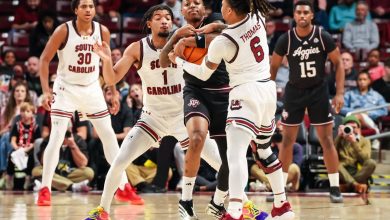Clemson head coach Dabo Swinney openly expresses strong dislike for the transfer portal and its impact on college football.

College football has undergone a massive transformation in recent years, with one of the most significant changes being the rise of the transfer portal. The portal, which allows players to transfer from one school to another without sitting out a year, has revolutionized player movement and recruitment. While many coaches embrace the portal for its opportunities, Clemson’s head coach Dabo Swinney has been notably vocal about his frustration and strong dislike for this new era.
The Transfer Portal: A Game-Changer in College Football
Before diving into Swinney’s views, it’s important to understand what the transfer portal is and why it has caused so much upheaval. Introduced by the NCAA in October 2018, the portal was designed to provide student-athletes with greater freedom to transfer between schools without penalty or delay. Previously, athletes transferring schools were often required to sit out a season before playing for their new team. The portal’s creation was hailed as a player empowerment movement, giving athletes control over their college careers.
However, the transfer portal has also brought significant challenges to coaches and programs. Suddenly, rosters are more fluid than ever, with players transferring at unprecedented rates. The “free agency” nature of college football is now a reality, making roster management more complex and competitive.
Dabo Swinney’s Background and Coaching Philosophy
Dabo Swinney has been the head coach of the Clemson Tigers since 2008, guiding the program to national prominence with two College Football Playoff National Championships (2016, 2018) and multiple ACC titles. Known for his energetic personality, commitment to player development, and strong team culture, Swinney has built Clemson into one of the nation’s elite programs.
Swinney’s coaching philosophy emphasizes loyalty, hard work, and team cohesion. He believes in recruiting players who fit the program’s culture and developing them over time to achieve their potential. This approach has traditionally relied on stability and long-term player commitment.
Swinney’s Critique of the Transfer Portal
In various interviews and press conferences, Dabo Swinney has openly criticized the transfer portal, expressing concerns that it undermines team unity and the foundational values of college football.
One of his core criticisms is that the portal encourages a “free agency” mindset, where players view college football more as a business transaction than a team sport. Swinney has lamented the fact that players often transfer for immediate playing time or perceived opportunities, sometimes without fully understanding the commitment and sacrifices required to build a successful program.
He has described the portal as “chaotic,” adding that constant roster turnover makes it difficult for coaches to build long-term chemistry and leadership within their teams. For Swinney, the lack of continuity among players disrupts the sense of family and trust that he strives to cultivate at Clemson.
In one interview, Swinney stated, “I hate the portal. It’s hard to build a program when players can just come and go whenever they want. You want guys who are committed to the cause, to the team, to the grind.” This blunt sentiment echoes his desire to maintain a traditional team-building approach, where players earn their roles over time and grow alongside their teammates.
Impact on Team Culture and Development
Swinney’s concerns about the transfer portal extend beyond just logistics; they touch on the core of college football’s culture and values. He believes that team culture suffers when players view their time at a school as temporary or transactional.
Clemson under Swinney has long prioritized culture — focusing on relationships, accountability, and collective effort. The success of the program is often attributed not just to talent but to the “Clemson Family” mentality that players and coaches talk about.
The transfer portal, in Swinney’s eyes, threatens this culture. Frequent player movement can erode trust and camaraderie, making it challenging for teams to develop the cohesion necessary for sustained success.
Moreover, Swinney worries about the message it sends to young athletes. He stresses the importance of patience, resilience, and earning one’s place, values he feels are undermined when players frequently jump from program to program.
The Recruiting Challenges and Roster Management
Another dimension to Swinney’s frustration is the difficulty the transfer portal creates for recruiting and roster management. Unlike traditional recruiting, where coaches identify and develop players over several years, the portal requires constant vigilance and quick decisions to replace departing players.
Swinney has noted how the portal makes it harder to plan for the future, as players can leave at any time. This volatility forces coaches to spend more time managing roster turnover and less time on player development and game planning.
Additionally, the influx of transfers means that programs must compete not only for high school recruits but also for experienced college players who might fill immediate needs. This dynamic complicates recruiting strategies and can shift focus away from building with younger talent.
The Transfer Portal’s Benefits and Swinney’s Nuanced View
Despite his strong criticism, Swinney does acknowledge that the transfer portal has some benefits. He recognizes that it offers players greater freedom and opportunities to find the right fit, which can be important for their personal and athletic growth.
Swinney has worked to adapt his program to the new landscape, using the portal judiciously to bring in transfers who align with Clemson’s culture and needs. His staff carefully evaluates potential transfers to ensure they are committed to the Clemson way.
In this sense, Swinney’s view isn’t black and white. He understands that the portal is here to stay and that programs must adapt. However, his overall tone remains one of caution and skepticism, particularly about the portal’s broader impact on college football’s traditions.
The Broader Debate in College Football
Dabo Swinney’s stance reflects a larger debate within college football about the balance between player empowerment and preserving the integrity of team-oriented sports.
Proponents of the transfer portal argue that it levels the playing field for athletes, giving them autonomy and the chance to maximize their college careers. Critics, like Swinney, worry about the consequences for team stability, competitive balance, and the educational mission of college sports.
Some coaches embrace the portal as a recruiting tool and a way to quickly improve their teams. Others, like Swinney, prefer to build teams through recruitment and development, emphasizing loyalty and continuity.
This tension highlights how college football is evolving rapidly, with traditional models being challenged by new rules and player freedoms.
How Clemson is Navigating the Transfer Era
Despite his misgivings, Dabo Swinney and Clemson have adapted to the realities of the transfer portal. Clemson actively recruits top transfers who fit the program’s culture, and the coaching staff integrates newcomers quickly.
Swinney’s leadership focuses on blending transfer players with homegrown talent to maintain team unity. The program emphasizes accountability and culture-building activities to help all players feel part of the Clemson family.
The Tigers have continued to compete at the highest levels, making College Football Playoff appearances and maintaining a strong presence in the ACC. This success demonstrates that while Swinney dislikes the portal, he is pragmatic about using it strategically.
Dabo Swinney’s open criticism of the transfer portal reflects his deep commitment to traditional values in college football — loyalty, team culture, and long-term development. His frustration underscores the challenges coaches face in an era of unprecedented player movement.
At the same time, Swinney’s approach also shows a willingness to adapt and find balance, leveraging the portal without compromising Clemson’s core identity.
As college football continues to evolve, the dialogue around the transfer portal and its effects will remain central. Swinney’s voice is a powerful reminder of the importance of preserving the heart of the game while embracing the changes that empower athletes.
For fans, players, and coaches alike, understanding this tension is key to appreciating the complex and dynamic nature of modern college football.









